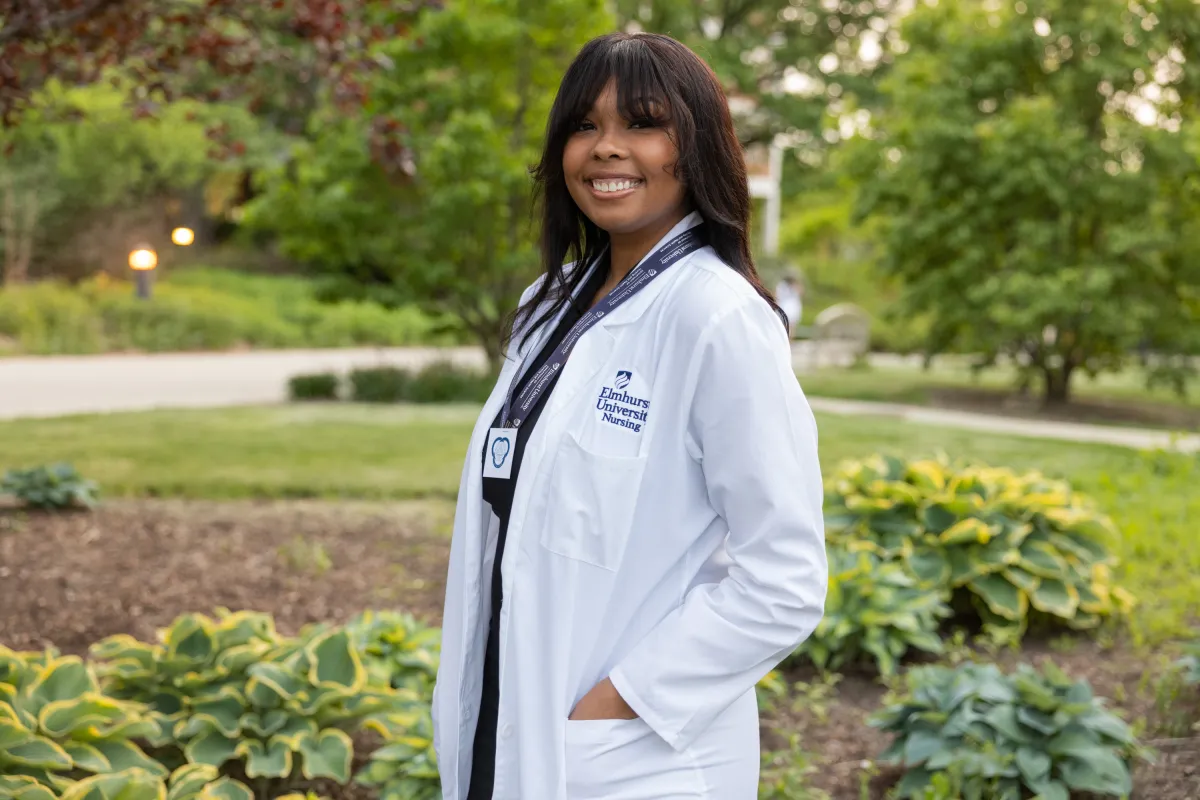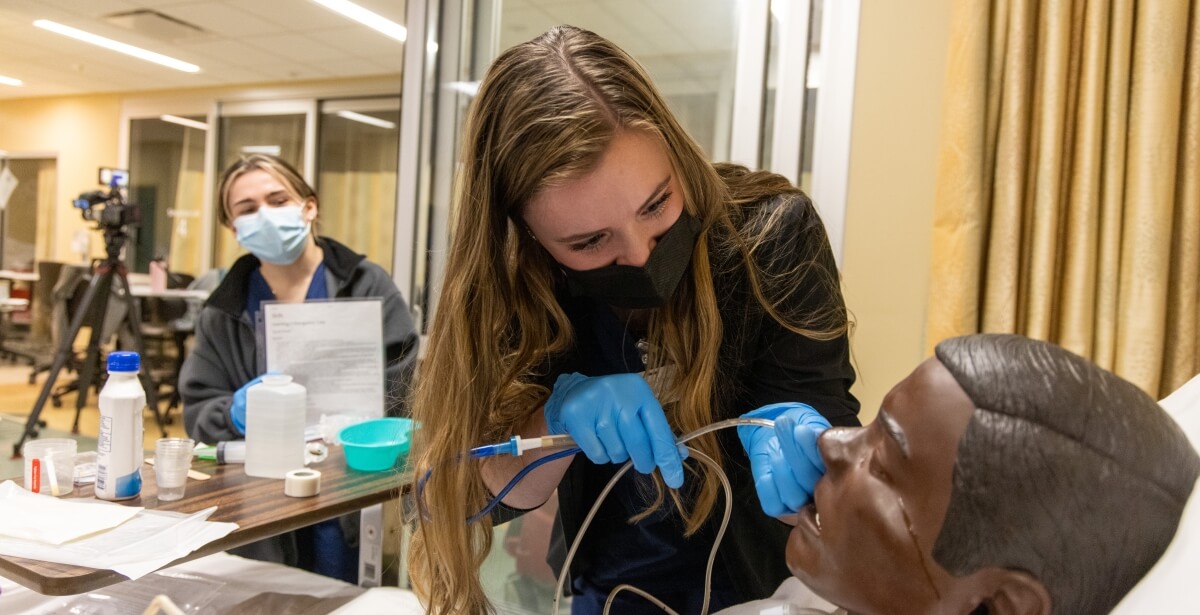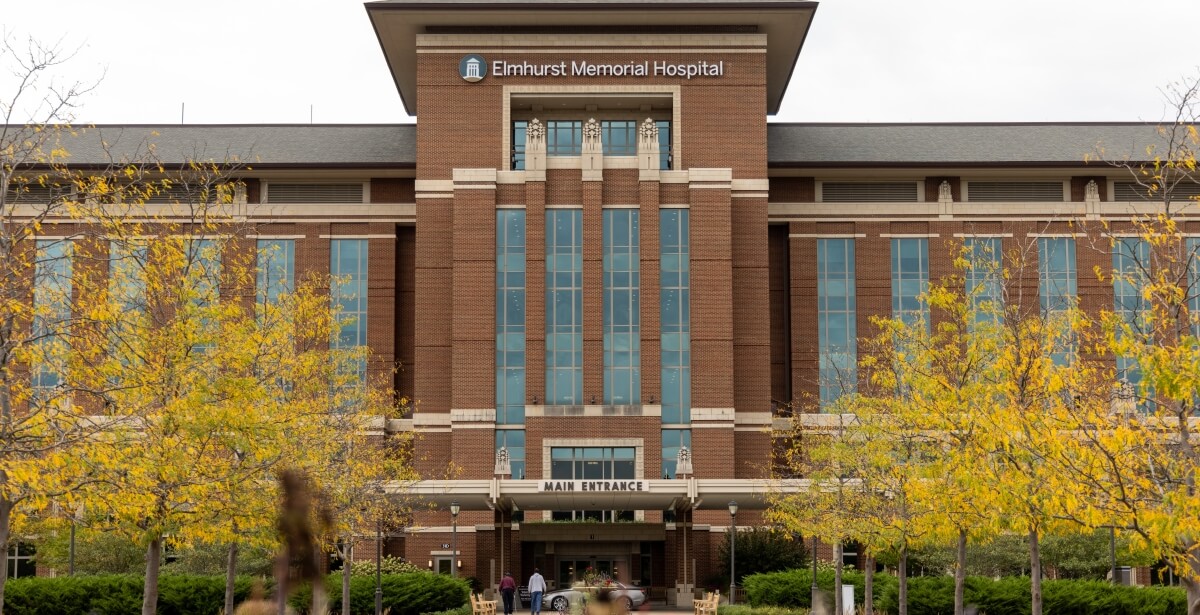What Are Prerequisites for Nursing? Your Path to Success at Elmhurst University

Are you inspired by the idea of profoundly impacting individuals' lives through compassionate health care? If so, a career in nursing might be your true calling.
Whether you're considering Elmhurst University’s online Accelerated BSN or the online Master’s Entry in Nursing Practice program, your journey toward becoming a skilled and caring nurse begins with asking, “What prerequisites do I need for nursing?”
In this comprehensive guide, we'll delve into the key nursing school prerequisites that pave the way to success in nursing school. We’ll delineate each prerequisite and how they contribute to preparing nurses for success in our online nursing programs.
Read: Why Are Clinical Placements Important?
Typical Nursing Prerequisites List
Nursing schools require prospective students to complete a specific nursing prerequisites list to ensure they have a strong foundation for the rigorous demands of nursing school. Let's explore some of these essential courses to understand their significance and how they relate to the nursing school curriculum.
1. Anatomy and Physiology
Anatomy and Physiology provide the fundamental knowledge of the human body's intricate systems and functions. As a nurse, you'll need to understand how various body parts interact and contribute to overall health. This knowledge is crucial for effective patient assessment, diagnosis and treatment.
Related Nursing Course:
Elmhurst University's course Health Assessment (NRS 300) focuses on the use of theories, principles and processes to develop skills in interviewing, history taking and physical examination. In this course, students examine the relevance of the assessment for decision-making in the practice of professional nursing.
2. Abnormal Psychology
Mental health is a critical aspect of nursing care, and Abnormal Psychology equips you with the understanding to address the unique needs of patients with mental health challenges. As a nurse, you'll encounter individuals with diverse psychological conditions, and this course provides insights into recognizing, empathizing and providing appropriate support.
Related Nursing Course:
Mental Health (NRS 408) at Elmhurst University empowers you with the knowledge needed to provide holistic patient care. This course focuses on theories, principles and processes related to mental health from early to older adulthood.
The Mental Health course also uses a systems framework to examine patient-centered care for diverse populations with acute or chronic mental health problems. Additionally, Elmhurst’s in-depth course delves into professional and legal issues for the care of vulnerable populations.
As a nurse, your ability to navigate the intricate landscape of mental health care is essential, ensuring that you not only address the immediate needs of patients but also uphold their rights, dignity and overall well-being. By immersing yourself in this course, you'll emerge with a deepened understanding of the complexities involved in mental health care, enabling you to be an advocate, ally and source of support for those who require it most.
3. Chemistry
In nursing, chemistry is the foundational knowledge nurses use to understand medication reactions, potential side effects and safe dosage calculations.
Related Nursing Course:
The Pathophysiology-Pharmacology I course (NRS 321) at Elmhurst University is the first of two courses with integrated content of pathophysiology and pharmacology. This course concentrates on the etiology, pathogenesis, clinical presentation and pharmacotherapy of common disease processes across an individual’s life span.
The course includes principles of pharmacokinetics and pharmacodynamics, which are used to discuss major drug classifications, including indications, actions, interactions and side effects.
4. Lifespan Psychology
A nurse may interact with individuals of all ages, from newborns to the elderly. Lifespan Psychology provides insights into human development and behavioral changes across distinct life stages. This knowledge enables you to provide patient-centered care that considers the unique needs of each individual.
Related Nursing Course:
Elmhurst University’s Adult Health I course (NRS 309) focuses on theories, principles and processes for adult populations experiencing common health problems within priority areas of care.
In this course, there is an emphasis on nursing care for older adults. The course utilizes a systems framework to discuss clinical prevention and patient-centered care for select chronic care issues, including end-of-life care.
5. Microbiology
Microbiology is the gateway to understanding microscopic organisms and their impact on human health. In nursing, this knowledge is vital for diagnosing and treating everything from infectious diseases to cancer.
Related Nursing Course:
Elmhurst University’s Pathophysiology-Pharmacology II course (RS 322) stands as the continuation of an integrated curriculum that brings together the realms of pathophysiology and pharmacology.
Embracing this course allows students to understand the intricate interplay between etiology, pathogenesis, clinical manifestation and the intricacies of pharmacotherapy for more complex disease processes that span the entire spectrum of human life.
What truly sets this course apart is its immersive case study model. By weaving together the threads of pathophysiology and pharmacology, this approach transforms theoretical knowledge into tangible skills with real-world applications.
6. Statistics
In the realm of evidence-based nursing and in continuous quality improvement, statistics play a pivotal role in informed decision-making. As a nurse, you must analyze patient data, interpret research findings and make critical clinical judgments.
Related Nursing Course:
Elmhurst University's Research and Evidence-Based Practice in Professional Nursing (NRS 410) course equips you with essential theories and skills to integrate research and evidence-based methods into nursing practice. Through focused strategies and critical appraisal techniques, you'll gain the ability to discern and apply high-quality evidence.
This course explores the intersection of evidence-based practice and information technology, revealing how these dynamics shape quality care outcomes. By honing your data literacy skills, Elmhurst ensures that you can provide safe and effective care grounded in solid evidence and thoughtful analysis.
In essence, this course entrusts you to navigate the modern health care landscape with confidence, enabling you to make informed decisions that enhance patient outcomes through the fusion of research-backed insights and technological advancements.
Nursing School Prerequisites Cumulative GPA Calculator
Are you uncertain about whether you meet the GPA requirements for nursing school?
Pursuing a second-degree nursing program at Elmhurst means that applicants must hold a bachelor’s degree in any discipline with a cumulative GPA of at least 3.0 for the ABSN program and 3.2 for MENP program. Elmhurst University provides a user-friendly GPA calculator designed to assist you in accurately assessing your eligibility.
Utilize the tool below to eliminate guesswork, enabling you to gauge your current standing and pinpoint areas for enhancement. Additionally, feel free to contact our admissions team to explore whether prerequisites can help offset any slight disparities in your GPA.
GPA Calculator
| Course | Credits | Grade |
|---|---|---|

What Do Nursing Schools Look for in Applicants?
Nursing schools seek candidates who not only possess the required academic background but also exhibit qualities that align with the nursing profession's values. Beyond the prerequisite courses, Elmhurst’s nursing programs require additional criteria such as an interview and a well-crafted personal statement that showcases your dedication to patient care.
Prerequisites for Elmhurst University's Online Accelerated BSN (ABSN) Program
| Requirement | Description |
|---|---|
| Bachelor's Degree | Hold a bachelor's degree in a non-nursing field from an accredited institution. |
| Minimum GPA | A cumulative GPA of 3.0 or higher is required. |
| Prerequisite Courses | Completion of prerequisite courses is mandatory with a "C" or better in each and a minimum 2.8 GPA within the science prerequisite courses: |
| - Anatomy and Physiology I (4 credits) | |
| - Anatomy and Physiology II (4 credits) | |
| - Microbiology with Lab (4 credits) | |
| - Statistics (3 credits) | |
| - General Chemistry with Lab (4 credits) | |
| - Lifespan Psychology (3 credits) | |
| - Abnormal Psychology (3 credits) | |
| Transcripts | Submission of official transcripts from all colleges and universities attended. |
| Personal Statement | Craft a well-written personal statement demonstrating a commitment to nursing and motivation for the program. |
| Phone Interview | Participate in a personal interview to showcase enthusiasm for nursing and alignment with program values. |
| Background Checks & Immunizations | Fulfill background check requirements and maintain up-to-date immunizations for clinical placements. |
Prerequisites for Elmhurst University's Online Master’s Entry in Nursing Practice (MENP) Program
| Requirement | Description |
|---|---|
| Bachelor's Degree | Hold a bachelor's degree in a non-nursing field from an accredited institution. |
| Minimum GPA | A cumulative GPA of 3.2 or higher is required. |
| Prerequisite Courses | Completion of prerequisite courses within the past five years is mandatory, with a "C" or better in each: |
| - Anatomy and Physiology I (4 credits) | |
| - Anatomy and Physiology II (4 credits) | |
| - General Chemistry with Lab (4 credits) | |
| - Microbiology with Lab (4 credits) | |
| - Intro to Psychology or Sociology (3 credits) | |
| - Statistics (3 credits) | |
| Transcripts | Submit official transcripts from all post-secondary institutions attended. |
| Personal Statement | Write a thoughtful personal statement outlining nursing goals, experience, and motivations for advanced practice. |
| Phone Interview | Participate in a personal interview to demonstrate enthusiasm for nursing and alignment with program values. |
| Background Checks & Immunizations | Fulfill background check requirements and maintain up-to-date immunizations, often necessary for clinical placements. |
Eligibility Criteria for Online ABSN Programs
If you're considering the Online Accelerated BSN program, keep in mind that this pathway is designed for individuals with a non-nursing bachelor's degree who are eager to transition into nursing.
Elmhurst University's ABSN program provides a fast-tracked route to registered nursing licensure, enabling you to embark on your nursing career sooner.
Online ABSN students are prepared for the National Council Licensure Examination (NCLEX) through coursework, dedicated NCLEX preparedness and clinical placements. Nursing school prereqs prepare students for courses covering the entire lifecycle.
Read more on the fastest way to become an RN
Exploring Elmhurst University's Online Nursing Programs
Elmhurst University sets itself apart by offering robust clinical placements and comprehensive support to its nursing students, a dedicated team assists each student in finding clinical placements.
Practical experience is a cornerstone of nursing education; our programs ensure you're well-prepared to apply theoretical knowledge in real-world health care settings. By engaging in clinical placements, you'll develop the hands-on skills and confidence needed to thrive as a nursing professional.

Your Path to Nursing Success at Elmhurst University
As you set your sights on a fulfilling nursing career, remember that meeting nursing school prerequisites are a crucial step toward realizing your aspirations. By completing courses in Anatomy and Physiology, Abnormal Psychology, Chemistry, Lifespan Psychology, Microbiology and Statistics, you'll establish a solid foundation for your nursing education and practice.
Nursing is not just a profession—it's a vocation that requires academic excellence and a compassionate heart. As you explore our online Accelerated BSN and Master’s Entry in Nursing Practice programs, remember that these prerequisites are the building blocks of your journey.

Discover the Most Innovative Nursing Programs in the United States
Elmhurst University’s innovative programs can be completed in as little as 16-20 months of full-time study. Graduates carry the University’s regional reputation with them into the workplace.
U.S. News & World Report placed Elmhurst University among leading Midwest schools in the following categories:
- No. 13 in Regional Universities Midwest
- No. 19 in Best Value Schools
- No. 20 in Best Colleges for Veterans
- No. 20 in Best Undergraduate Teaching
- No. 9 in Most Innovative Schools
- No. 8 in Top Performers on Social Mobility
Elevate your nursing school journey by exploring Elmhurst University's online Accelerated BSN and online Master’s Entry in Nursing Practice programs. Discover how these programs can equip you with the knowledge, skills and compassion needed to thrive as a nursing professional.
Begin your application today and embark on an exciting path toward transforming health care and positively impacting patients' lives.

